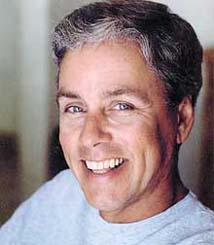 I can't help but wonder why the New York Times posted someone's book report on J.D. Salinger. Ok, perhaps that's unfair, but would this recent article — a fairly lengthy one that appeared on the final day of 2008 — have been published if it weren't the end of the year?
I can't help but wonder why the New York Times posted someone's book report on J.D. Salinger. Ok, perhaps that's unfair, but would this recent article — a fairly lengthy one that appeared on the final day of 2008 — have been published if it weren't the end of the year? Now, it's true that Salinger's birthday was on Thursday; he turned 90 on New Year's, so an argument can be made that there's a news hook to attach to the piece. But otherwise, it's primarily a review of Salinger's last published short story. At times, the piece seems eager to poke at Salinger, to prod him as though he might start publishing again.
But honestly, what's the point? He's 90 and whether he's healthy and vital or old and infirm, he has made his place in the world of literature. If there is anything of his to publish after his death — and I suspect there will be — then why hustle in that new era of regard for Mr. Salinger.
There will be at least three periods of Salinger: his active writing, during which he penned some of the greatest short stories and wrote The Catcher in the Rye, where he developed at least one of the most enduring characters in American literature; his quiescence, during which Salinger was an enigma; and his literary resurrection. We don't know what will come of this next life. For sure, there'll be new devotees who emerge. He may come to redefine American literature again. Or he may show that he has been truly a hermit and his work has not advanced but merely rehashes his Glass families foibles, leaving Salinger like some sad scientist who can't turn away from his samples to see how the real world is changing.
Of course, I will read the next Salinger – living, dead, somewhere between or above. What writer wouldn't? Goddam, he's J.D. Salinger! But the thing about great literary writers is that they survive forever, regardless of when their bodies start to decompose. It's their minds that zombies like me devour.
So, I suppose I've answered my own question — the one about the book report and the Times. Because there's other people like me out there who love to read about J.D. Salinger, even if he hasn't published a word in four decades.





